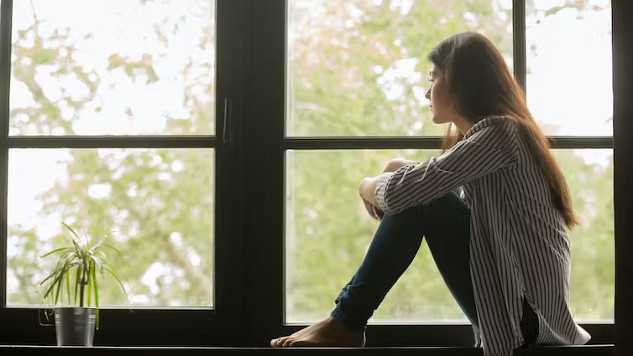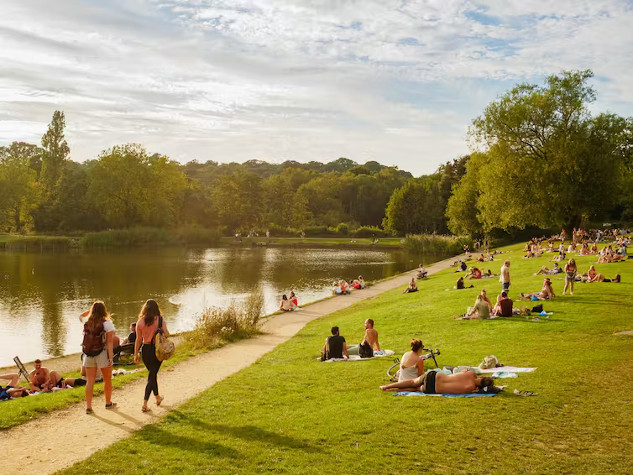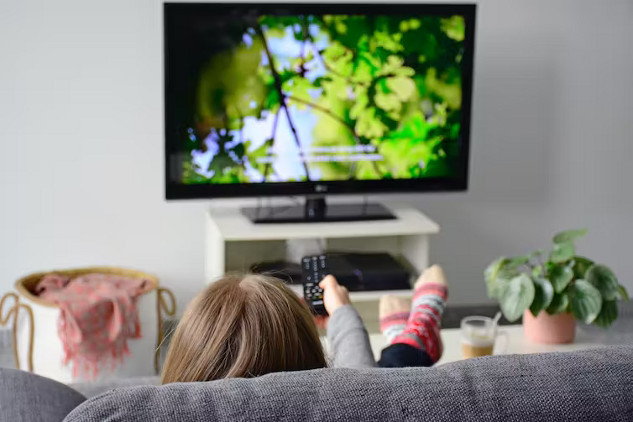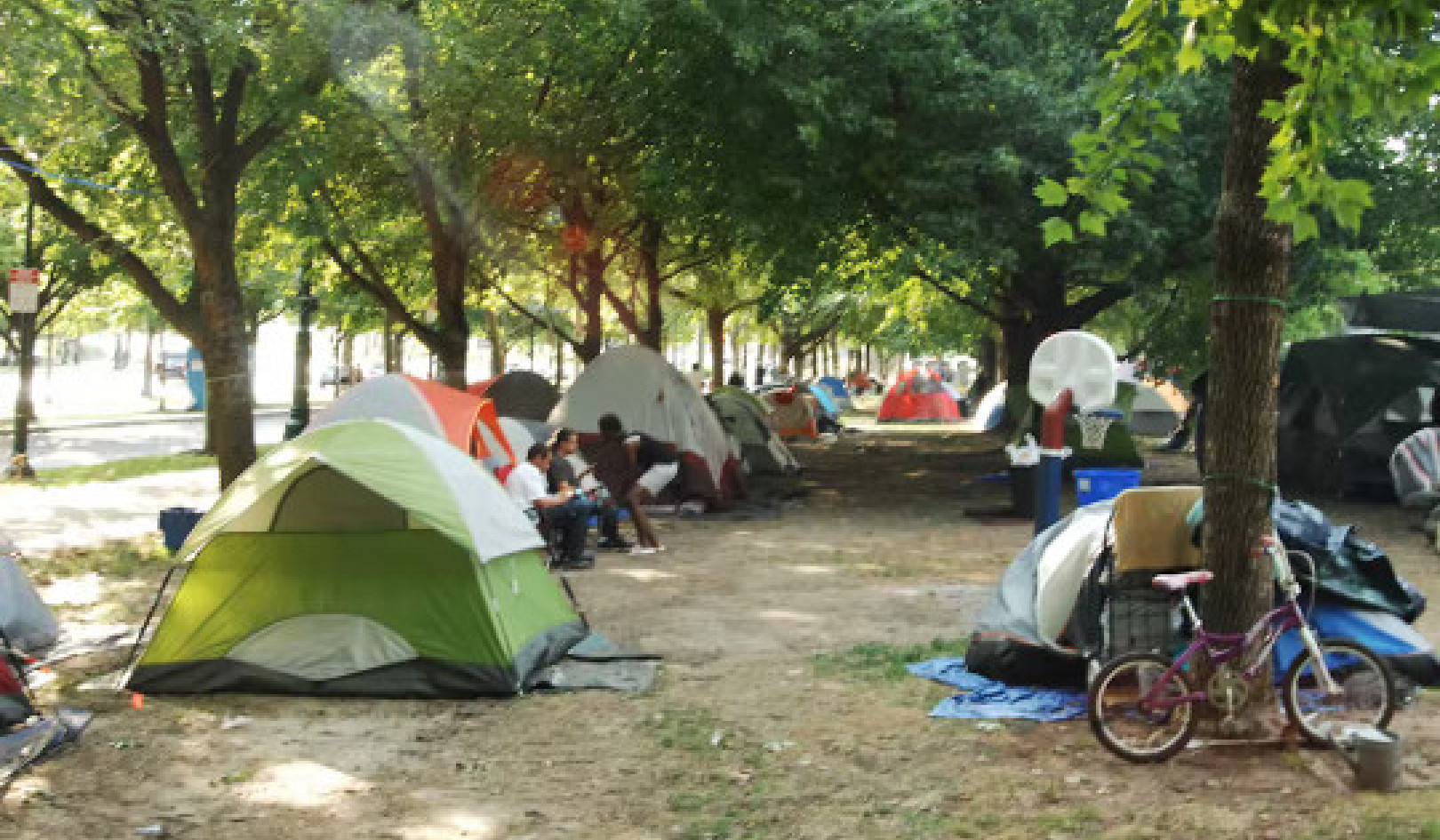
There are plenty of ways to benefit from nature in and around your home. fizkes/Shutterstock
Spending time in a garden is good for you. It doesn’t matter if you’re watering plants or simply chilling on a deck chair – there’s a whole range of benefits that come with it. These include improved health and wellbeing, reduced mental fatigue and better sleep quality.
Those who get stuck into gardening also experience less stress and more physical activity. Research finds that these people even tend to eat more fruit and vegetables.
But not everyone is able to access a garden. With inflation squeezing incomes, owning a home with a garden is more difficult than ever, particularly for young people, and rental accommodation may not always come with outside space.
An English survey from 2021 revealed that those aged 16-24 were more than twice as likely to lack access to a garden or allotment compared to those aged over 65. My own research team dug into this issue too. We found that younger people and those on a lower income in the UK had a harder time accessing a garden than older and richer people.
But don’t despair if you’re unable to access a garden. There are plenty of ways to benefit from nature in and around your home without stepping foot in a garden. Here are three ways research suggests you can bring nature into your life.
1. Visit a park
The presence of nature – such as plants and trees, natural sounds like birdsong, and water – is part of what makes gardens so good for us. Research finds that contact with nature can reduce stress and depression, improve work and educational performance, increase wellbeing and help us live longer.
It’s not just gardens that offer this dose of nature. In fact, nature can be found in many urban parks, even in tiny pocket parks (small areas of public green space).
These parks are more than just serene spots. They can also be great places to meet up with friends and family, particularly if they include cafés, tables and seating areas. Building social relationships like this comes with a number of added health benefits too.
Many people will find a park close to their home. The Office for National Statistics estimate that more than a quarter of people in Great Britain live within a five-minute walk of a public park, and 72% within a 15-minute walk.

People relaxing on the grass at Hampstead Heath, London. Alex Segre/Shutterstock
However, inequalities exist here too. The quality of urban parks tends to be better in wealthier areas compared with those in areas with lower socioeconomic status.
2. Get some houseplants
Houseplants are a great way to bring nature into your home if you have no outdoor space. As with other forms of nature, indoor plants are linked to reduced blood pressure and lower levels of stress.
They also help make a space more attractive, turning it into somewhere you want to spend time in. In one study, students showed a preference for studying in a room with potted plants compared to a room without them.
Many people also value the act of caring for their houseplants – whether this is watering them, feeding them or “giving them a haircut”.
Houseplants may also help if you have to spend long periods of time indoors. During the COVID lockdowns, for example, exposure to greenery helped residents in Shanghai, China, by reducing loneliness and depressive symptoms.
If you spend a lot of time working or studying at home, houseplants may also improve your ability to work. In an office setting, people who had plants in the room performed better when working on demanding tasks. Separate research on Norwegian office workers also found that the presence of indoor plants improved productivity and reduced sick leave.
There are lots of houseplants to choose from and it can be difficult to know where to start. But there are plenty of online guides to help you choose the right one. And for those of you that worry you’ll accidentally kill your new houseplant, know that even qualified horticulturalists regularly lose plants – it’s all trial and error.
3. Make use of digital nature
If you live somewhere you can’t own houseplants, or you are not ready for the responsibility, try surrounding yourself with digital nature instead. During Israel’s initial COVID lockdown, a survey of 776 people revealed that viewing images of nature on a computer screen was linked to lower levels of stress and fewer negative emotions.

Try surrounding yourself with digital nature. Ellyy/Shutterstock
You could also watch some nature documentaries, or clips of animals and birdsong on your social media. In our recent research, we found that watching videos of nature on social media – specifically highlights from the BBC’s Springwatch TV series and from Chris Packham’s (a UK TV presenter and naturalist) livestream videos on Facebook – helped support wellbeing during the COVID lockdowns.
No matter your circumstances, there’s always a way to bring a bit of nature into your life.![]()
About The Author
Emma White, Visiting Research Fellow in Environmental Psychology, University of Surrey
This article is republished from The Conversation under a Creative Commons license. Read the original article.

Books Improving Attitude and Behavior from Amazon's Best Sellers list
"Atomic Habits: An Easy & Proven Way to Build Good Habits & Break Bad Ones"
by James Clear
In this book, James Clear presents a comprehensive guide to building good habits and breaking bad ones. The book includes practical advice and strategies for creating lasting behavior change, based on the latest research in psychology and neuroscience.
Click for more info or to order
"Unf*ck Your Brain: Using Science to Get Over Anxiety, Depression, Anger, Freak-Outs, and Triggers"
by Faith G. Harper, PhD, LPC-S, ACS, ACN
In this book, Dr. Faith Harper offers a guide to understanding and managing common emotional and behavioral issues, including anxiety, depression, and anger. The book includes information on the science behind these issues, as well as practical advice and exercises for coping and healing.
Click for more info or to order
"The Power of Habit: Why We Do What We Do in Life and Business"
by Charles Duhigg
In this book, Charles Duhigg explores the science of habit formation and how habits impact our lives, both personally and professionally. The book includes stories of individuals and organizations who have successfully changed their habits, as well as practical advice for creating lasting behavior change.
Click for more info or to order
"Tiny Habits: The Small Changes That Change Everything"
by BJ Fogg
In this book, BJ Fogg presents a guide to creating lasting behavior change through small, incremental habits. The book includes practical advice and strategies for identifying and implementing tiny habits that can lead to big changes over time.
Click for more info or to order
"The 5 AM Club: Own Your Morning, Elevate Your Life"
by Robin Sharma
In this book, Robin Sharma presents a guide to maximizing your productivity and potential by starting your day early. The book includes practical advice and strategies for creating a morning routine that supports your goals and values, as well as inspiring stories of individuals who have transformed their lives through early rising.






















